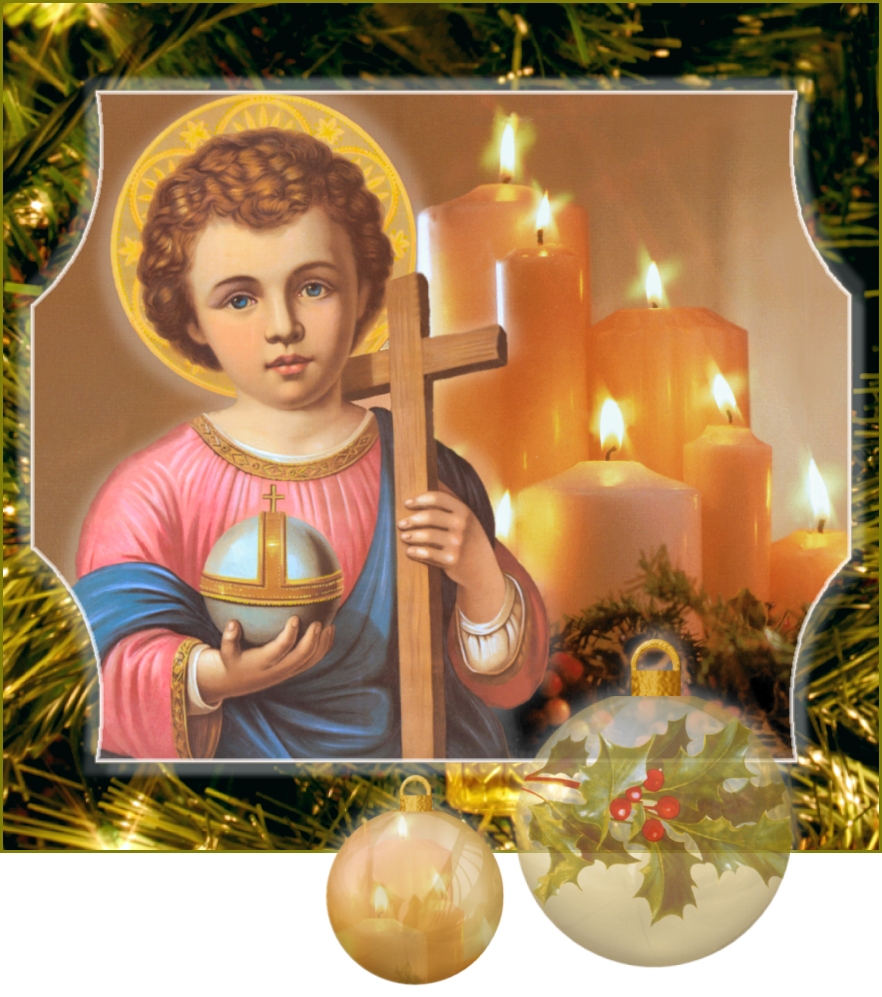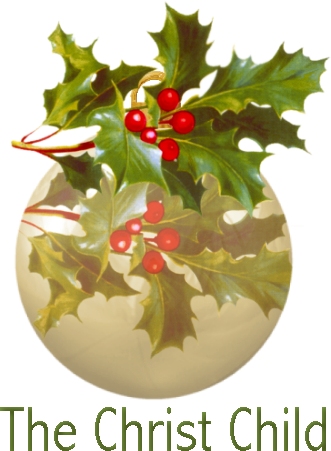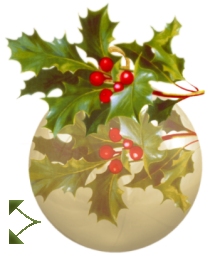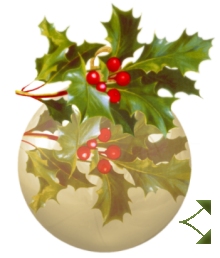

OBEDIENCE
AND THE CHILD AT THE
TEMPLE
by Archbishop Fulton J. Sheen
On the first Passover after Jesus had passed His twelfth year, His parents took Him to Jerusalem with the other men of Nazareth. The Law required the attendance of all Jewish men at the three great feasts: Passover, Pentecost, and the Tabernacles. When the Divine Child went up to the temple, He probably followed as usual all the injunctions of the Jewish Law. At three, He had been given a tasseled garment; at five, He learned under His mother's direction portions of the Law which were written out on scrolls; at twelve, He began to wear phylacteries, which the Jews always put on for the recital of daily prayer. It took several days to travel the narrow roads between Nazareth and the Holy City. Like all pilgrims, the Holy Family probably chanted the processional Psalms en route, Psalm 121 being sung when the walls of the temple first came in sight.
Joseph must have gone to the temple to kill the Paschal lamb. Since the Child was of legal age for the temple ceremonies, He must have watched the lamb's blood pour forth from the wound, to be scattered at the foot of the altar in the four directions of the earth. The Cross was once more before His eyes. The Child would also have seen the carcass of the Iamb being prepared for supper. This was done, according to the Law, by running two skewers of wood through the body, one through the breast, and the other through the forelegs, so that the Iamb had the appearance of being on a Cross.
After fulfilling the rites, the men and women left in separate caravans, to meet again at night. But the Boy Jesus, unknown to His parents, stayed behind in Jerusalem. They, thinking that He was among their traveling companions, had gone a day's journey before they missed Him. It was thus that Jesus was "lost" for three days. All through His infancy there was talk of "contradiction," "swords," "no room," "exile," "slaughter," and now there was "loss." In those three days, Mary came to know one of the effects of sin, namely, the loss of God. Though she was without sin, nevertheless she knew the fears and the loneliness, the darkness and the isolation which every sinner experiences when he loses God. It was a kind of glorified hide-and-seek. He was hers; that was why she sought Him. He was on the business of redemption; that was why He left her and went to the temple. She had her dark night of the body in Egypt; she would now have her dark night of the soul in Jerusalem. Mothers must be trained to bear crosses. Not only her body, but also her soul would have to pay dearly for the privilege of being His mother. She would later suffer another three-day loss from Good Friday to Easter Sunday. This first loss was part of her preparation.
Christ is always found in unexpected places; in a manger by the Wise Men; in a small town, despised even by the Apostles. His parents now found Him unexpectedly in the temple. It was three days before they found Him, just as it would be the third day before Mary would find Him again after Calvary. The temple had great fascination for Him, since it was the little figure or model of Heaven; the Father's house was His home and in it He felt at home.
There was a school in the temple, in which a number of Rabbis taught; the gentle Hillel was perhaps still alive and may have been present in the temple to join in the discussion of the Divine Child. Hillel's son, Rabbi Simeon and his even greater grandson, Gamaliel, the future teacher of St. Paul, may have been of the number---although Gamaliel at that time would have been only about the same age as the Divine Child. Annas had just been appointed high priest, and certainly he must have heard about the Divine Child, if he were not actually present.
It was in this school of Rabbis that Mary and Joseph found Him.
After three days they found him sitting in the temple surrounded by the teachers, listening to them and putting questions; and all who heard him were amazed at his intelligence and the answers he gave. [Luke 2:47-48]
The fact that He was sitting in the midst of the doctors would indicate that they received Him not just as a learner, but as a professor ... His parents were astonished to see him there. [Luke 2:48]
In a land where the authority of the father was supreme, it was not Joseph the foster father, but Mary, who spoke:
My son, why have You treated us like this? Your father and I have been searching for You in great anxiety. [Luke 2:48]
The virgin Birth was implied in her questioning. Her question implied that the emphasis was more on the fact that He was her Son than upon the fact that He was also the Son of God. This distinction is further underlined by the fact that she added a note about fatherhood, saying, "Thy father and I."
The Divine Child answered by making a distinction between the one whom He honored as a father on earth and the Eternal Father. This answer affirmed a parting of the ways; it did not diminish the filial duty that He owed to Mary and Joseph, for He became immediately subject to them again, but it decisively put them in a second place.
These are the
first recorded
words of Jesus
in the Gospels, and they are in the form of a question:
What made you search? he said. Did you not
know that I was bound to be in my Father's house?
[Luke 2:49]
This is an evident reference to Mary's words "Thy father and I." When He said that His mother should have known He was about His Father's business, He was evidently referring to what she had learned at the Annunciation when the Angel said to her:
The Holy Spirit will come upon you, and the power of the Most High will overshadow you; and for that reason the holy Child to be born will be called Son of God. [Luke 1:35]
His relationship with His own mother He would take up again at the Marriage Feast of Cana; here He established the nature of His relationship to His foster father. He disowned physical paternity, by claiming His Divine paternity, that of His Heavenly Father. At Cana He would say to His Mother:
Your concern, mother, is not mine. [John 2:4]
Then he was implying a motherhood other than that of the flesh, as now He implied a fatherhood other than that which was exercised by Joseph. Never again does Joseph appear in the Gospels.
In the temple, Our Lord alienated Himself from the claim of His foster father, just as later at Cana He would alienate Himself from the claims of His mother. His supreme business was to be a Savior; but for the moment that included obedience to His earthly guardians.
The Child was implying that there was something in history which ought to be known to His mother and His foster father, something that justified His being where He was, and forbade their anxiety about Him. It was because of that that He asked, "What reason had you to search for Me?" And added, "Could you not tell that I must needs be in the place which belongs to My Father?" He was saying that He must be in the temple of His own Father. This was the first of many "musts" that Our Blessed Lord uttered during His life to indicate that He was under a mandate, under obedience to be a ransom. The very fact that He associated the word "must" with His Heavenly Father meant that Sonship implied obedience. At the age of twelve, He was girding Himself for something that would be irksome to His human nature, but His whole nature was bent on the accomplishment of a Divine "must."
If there is anything that dispels the false assumption that His consciousness of a union with the Father developed gradually, it is this text in which He, as a Boy of twelve, hinted at His mysterious origin and at the peculiar foster character of His father, as well as at His perfectly conscious unity with the Godhead; the Divine constraints which swayed His life were already profoundly realized by Him. He often used the word "must."
I must preach
the Kingdom of
God.
I must abide in thy house.
I must do the works of Him Who sent
Me.
The Son of Man must suffer many things.
The Son of Man must be lifted up.
The Son of Man must suffer to enter
into His glory.
The Son of Man must rise again.
He always talked as one under orders. Free from the compulsions of heredity, circumstances or family, this Boy of twelve said that He was bound by Heaven's commission. Therefore, He asked why they had searched for Him . . . that any explanation other than that He was obeying His Father's will should even have occurred to them. The imperative of Divine Love was manifested in His "I must." There was no fundamental difference between the Boy in the temple and the Man Who was to say that He "must be lifted up" on the Cross. He would have to die because He wanted to save. His filial obedience to His Father coincided with His pity for men. It would not be a tragedy, for the "Son of Man must rise again after three days." His plan was gradually revealed to the minds of men; but there was no gradual revelation in His mind, no new understanding, of why He had come.
His Father's business at the end of the three days in the temple was no different from His Father's business at the end of three days in the grave. Like all other incidents in His infancy, this one bore witness to the Mission of the Cross. All men are born to live; He was born to do the Father's business, which was to die, and thereby to save. These first recorded words seem like the buds of a passion flower. On Easter Sunday Mary would find Him again in the temple---the temple of His glorified Body.
The sword was already coming to Mary before the Cross had come to her Son, for she was already feeling the cutting separation. On the Cross, He would, in His human nature, utter the cry of His greatest agony, "My God! My God! Why hast Thou forsaken Me?" But Mary uttered it while He was still a Boy, lost in the temple. The most penetrating sorrows of the soul are those which God imposes, as Jesus imposed this one on His mother. Creatures can hurt one another only on the outside, but God's purifying flame can enter their souls like a two-edged sword. Both His natures were teaching her to prepare her for His sorrowful life: His human nature by hiding the loveliness of His Face from her during those three days, better called three nights; His Divine nature by proclaiming that the Father had sent Him to earth to do Heaven's business, which was to open it to mankind by paying the debt of mankind's sins.VIEW THE FINDING OF THE SAVIOR BY HOLMAN HUNT
VIEW THE BANNER IMAGE, PLAIN


HOME-----------------------CHILDREN
www.catholictradition.org/Christmas/christ-child11.htm